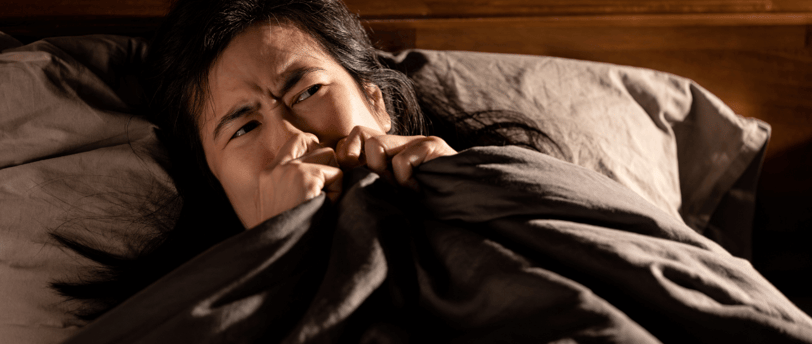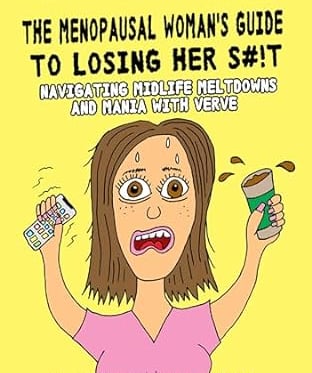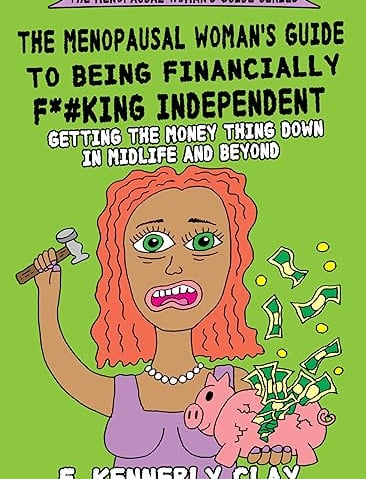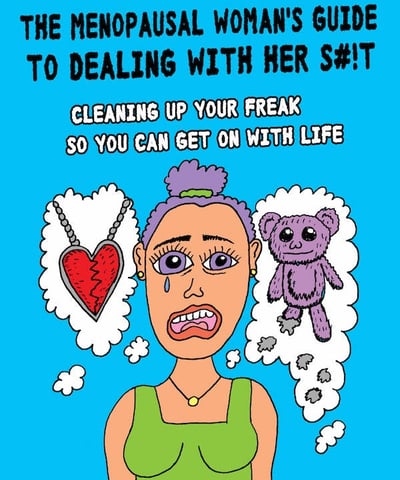Feeling Psychotic in Menopause? When to Get Help
Wondering whether menopause is causing psychotic episodes because your mood swings and outbursts seem so extreme? ✔️ Here's how to recognize psychosis.
MENOPAUSAL MENTAL HEALTHMENOPAUSAL SYMPTOMSMENOPAUSAL DEPRESSION
Kennerly Clay
5/17/20244 min read


Can menopause cause psychotic episodes?
While menopause doesn’t directly cause psychotic episodes, the hormonal changes can stir up significant emotional turmoil. This is why it’s crucial to understand the link between Menopause and Mental Health. By doing so, women can better navigate Treating Menopause Depression and ensure they receive the support they need during this tumultuous time.
Psychotic episodes, often referred to simply as psychosis, represent a significant deviation from reality. Clinically, these episodes are characterized by a range of symptoms that can severely disrupt an individual's perception and interaction with the world around them. According to the National Institute of Mental Health, symptoms of psychotic episodes may include:
Suspiciousness or paranoia
Trouble thinking clearly
Social withdrawal and isolation
Unusual or intense ideas, strange or absent feelings
Decline in self-care or hygiene
Sleep disturbances, including difficulty falling asleep and reduced sleep
Difficulty distinguishing reality from fantasy
Confused speech or communication issues
Sudden drop in academic or job performance
Psychosis may sometimes include hallucinations as well.
If you're experiencing severe depression symptoms and you're concerned about menopause and mental health, such as changes in mood and / or behavior, it's critical to talk with a mental health professional. They will assess your medical and mental health history, your family history, and your symptoms, and can help you find a way forward with appropriate treatment options.
If you or someone you know is in crisis, please call 988, the Suicide & Crisis Lifeline in the United States.
Estrogen decline and increased risk of schizophrenia
In women estrogen delays the onset of schizophrenia. In the peri-menopausal period, fading estrogen secretion in vulnerable women can increase the risk of schizophrenia.
Watch Prof Jayashri Kulkarni's discussion of the important role estrogen plays in women's mental health
Menopausal 'mania'
Menopause marks a significant transition in a woman's life, often characterized by a dramatic shift in hormonal balance. Primarily, the levels of estrogen and progesterone fluctuate, leading to various physiological and psychological changes. Estrogen, known for its role in maintaining mood stability, sees a notable decline during menopause. This reduction can result in mood swings, anxiety, and even depression.
Progesterone, another key hormone, is also affected. Often termed the "calming hormone," its decreased levels can contribute to feelings of irritability and restlessness. The intricate dance between these hormones is essential for mental well-being, and any disruption can have profound impacts.
A number of studies have delved into the link between menopause and mental health. Research published in the Journal of Affective Disorders found that perimenopausal women are 40% more likely to experience depressive symptoms compared to their pre-menopausal counterparts. These hormonal shifts are not just minor glitches; they can significantly impact your mental health. The decline in estrogen, for instance, affects the production of serotonin, a neurotransmitter pivotal for mood regulation. Lower serotonin levels are often associated with depression and anxiety. Additionally, sleep disturbances, common during menopause, can exacerbate these mental health issues, creating a vicious cycle.
If you're not used to experiencing wild mood swings and mental health issues, these changes can be frightening and distressing, to say the least. And it can certainly feel like you're having a psychotic episode. I've experienced times during menopause when I truly thought I was having a psychotic break and/or a nervous breakdown. I found myself completely incapable of managing daily life and my mental health symptoms were so full-blown I needed intensive outpatient therapy, for months on end.
If this sounds a little bit like you, don't tough it out or wait for something horrible to happen. Get in touch with a healthcare professional you trust, for guidance.
While the occurrence of psychotic episodes during menopause is less common, the possibility cannot be entirely ruled out. The hormonal rollercoaster can lead to extreme emotional and psychological responses, particularly in people with a history of mental health conditions. Understanding these hormonal changes is crucial in recognizing and addressing the mental health challenges that may arise during menopause.
Menopausal psychotic episodes: The verdict
Hormonal fluctuations during menopause can most assuredly impact mental health. Just ask any menopausal women who's lost her shit in the menopausal years. Estrogen, a key hormone that sharply declines during menopause, plays a significant role in mood regulation and cognitive function. Its reduction can lead to symptoms such as depression and anxiety.
But can menopause lead to psychotic episodes?
In rare cases, some women in menopause may experience more severe mental health issues like psychotic episodes, particularly if you're already predisposed to mental illness. Current medical opinions and research findings suggest that while menopause itself is not a direct cause of psychosis, it can exacerbate underlying mental health conditions or contribute to severe psychological symptoms in some women. It's essential to recognize that while menopause can be a challenging time, experiencing severe symptoms such as psychosis is not the norm.
While menopause itself is not a direct cause of psychosis, it can exacerbate underlying mental health conditions or contribute to severe psychological symptoms in some women.
Keep in mind that hormonal changes can trigger or worsen pre-existing conditions, making it crucial for you to monitor your mental well-being closely during this transition. If you or someone you know is experiencing severe menopause depression symptoms, seeking professional help is paramount. Consulting with a healthcare provider can help manage symptoms and improve quality of life through tailored treatments, including hormone replacement therapy, psychiatric medications, and counseling.
While menopause alone does not typically cause psychotic episodes, its impact on mental health should not be underestimated. Awareness, early intervention, and professional guidance are key to navigating this complex period in your life.
Wanna talk more about psychosis in menopause?
Books for women who are losing it in menopause
Mental Health
Losing your mind in peri/menopause?
The menopausal woman's guide series
Financial Health
Had enough of financial insanity?
Personal Growth
Triggers? Old stuff kicking up?
Related topics
Explore helpful articles, tips, and advice for women who are losing their shit in menopause.
Community
Stay Connected
© 2024. Eclectic Content, Inc. All rights reserved.






